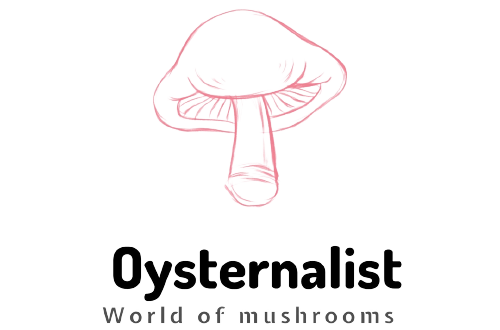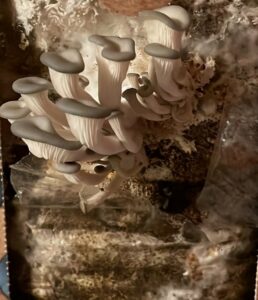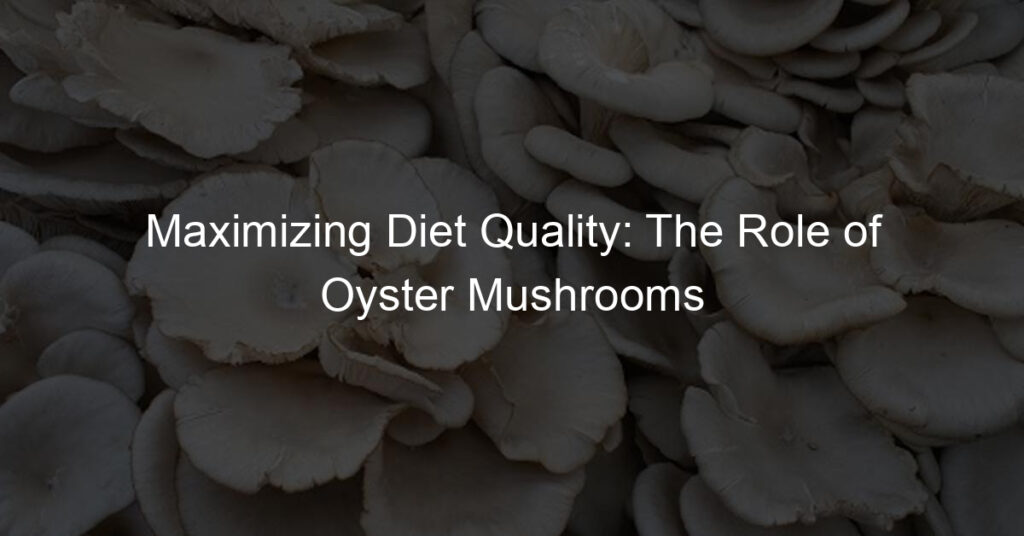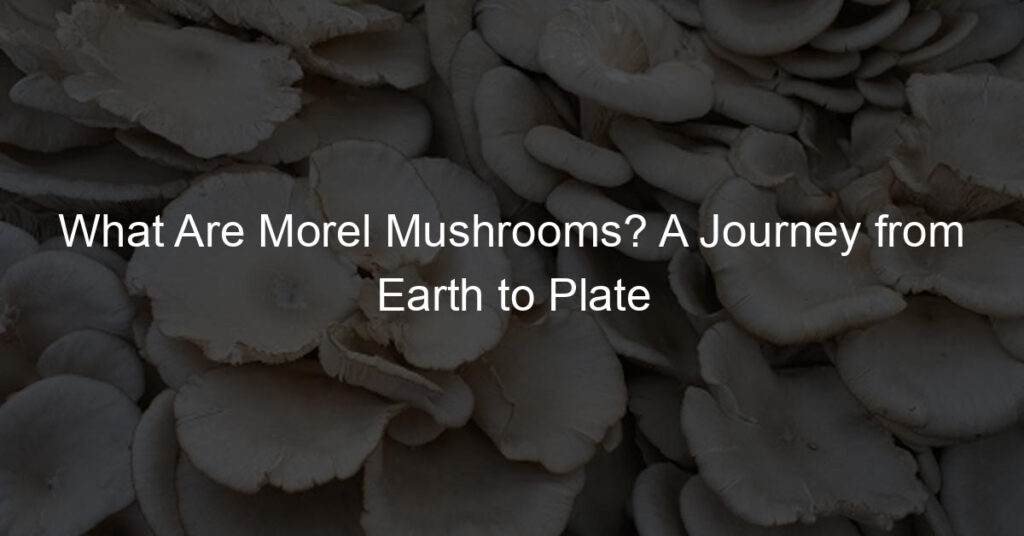The oyster mushroom is one of the most potent and healthy foods on Earth. It is also a source of ergothioneine, which is one of the most powerful antioxidants in nature. It’s one of only five known antioxidants with an anti-cancer effect.
Furthermore, the oyster mushroom contains a unique polysaccharide called lentinan that has been shown to boost immunity, help to fight cancer, fight infection, and even help to prevent heart disease.
There is no evidence that oyster mushrooms can make you sick. They are considered to be healthy food. Oyster mushrooms are a good source of protein, fiber, and vitamins, and they have been shown to have anti-inflammatory properties.
Whether it’s king oyster mushrooms or pearl oyster shrooms, as long as they stay fresh, they are a healthy addition to many dishes. Do not eat an excessive amount of mushrooms in one meal. adverse effects may include gastrointestinal distress, such as abdominal pain and diarrhea.
However, some people may experience gastrointestinal discomfort when consuming oyster mushrooms. if you have an allergy to oyster mushrooms, you should avoid them. Some people allergic specify certain types of mushrooms may also be allergic to Oyster mushrooms. Take a closer look and make sure you didn’t eat oyster mushroom lookalikes.
Oyster mushrooms are generally safe to eat.
Can you eat oyster mushrooms raw?
One of the ways you can enjoy oysters is by eating raw or undercooked oyster mushrooms. You can find fresh oyster mushrooms in grocery stores and in some restaurants where they serve them raw.
This is a popular way to enjoy these delicious and flavorful fungi as they grow wild in most areas of the country. Nowadays, You can even find oyster mushrooms online!
Some people are wary of eating raw oysters because they fear that the oysters are contaminated with pathogens, like norovirus. However, no evidence eating raw oysters can make you sick.
If you want to know for certain whether or not it’s safe to eat raw oysters, be sure to cook them first! This isn’t just because you want your food cooked; it’s also important so that the harmful bacteria on the surface of the oyster get killed off by the heart.
Just remember: if you don’t cook your food long enough, it may still harbor harmful bacteria that will make you sick! Cooked mushrooms can be a good start if you never tasted mushrooms before.
What part of oyster mushrooms do you eat?
oyster mushrooms are edible mushrooms and are popular in many cuisines. The part of the oyster mushroom that is most commonly eaten is the cap, which is the fleshy, spore-bearing portion of the mushroom. The stem is also edible but is often tough and not as flavorful as the cap.
Oyster mushrooms’ taste can vary depending on their preparation, but they are generally considered a delicacy. their texture is also quite different from most other mushrooms, being more chewy and meaty.
In terms of flavor, It is kind of like a cross between a mushroom and seafood. In terms of flavor, oyster mushrooms taste earthy, and yet each type has its unique taste, apart from the mild tones that are characteristic of all mushrooms.
Can You Be Allergic To Oyster Mushrooms?
While it is possible to be allergic to oyster mushrooms, this is quite rare. Most people who suffer from mushroom allergies are mostly allergic to the spores, and not the mushroom itself.
If you have an allergy to oyster mushrooms, you may experience gastrointestinal discomfort, respiratory problems, or skin reactions. If you think you have a mushroom allergy, it is important to see a doctor so that they can properly diagnose your allergy.
Can oyster mushrooms cause stomach pain?
Some people believe that oyster mushrooms can cause stomach pain, but there is no scientific evidence to support this claim. -Some people have reported experiencing stomach pains after eating raw oysters. Raw does not always say fresh mushrooms.
Other symptoms associated with oyster mushrooms include vomiting, diarrhea, and abdominal cramps. -The most common symptom of an oyster mushroom is a tingling sensation on the lips or in the mouth. Oyster mushrooms go bad quickly if not stored well.
Mushroom poisoning usually occurs when people mistake poisonous mushrooms for edible ones. This is why you must keep close attention if you harvest wild mushrooms. If you see that you have eaten a poisonous mushroom, it is important to seek medical attention immediately.
Oyster Mushroom Poisoning
While oyster mushrooms are not podosome lookalikes can be dangerous if eaten. The most common type of poisonous oyster mushroom is the Jack O’Lantern Mushroom (Omphalotus olearius).
This mushroom gets its name from its orange color and spooky appearance. It is often found growing on dead trees or stumps, which is why it is also sometimes called the stump mushroom. The majority of oyster mushrooms are light gray or brown.
The Jack O’Lantern Mushroom contains a toxin called orellanine, which can cause liver and kidney failure in humans. Symptoms of orellanine poisoning include vomiting, diarrhea, abdominal pain, and renal failure.
Can oyster mushrooms cause diarrhea?
There is no definitive answer to this question as everyone’s digestive system reacts differently to different foods. However, some people may experience diarrhea after eating oyster mushrooms due to their high fiber content. If you are susceptible to digestive issues, it is best to avoid oyster mushrooms or eat them in moderation.
This doesn’t mean that oyster mushrooms cannot make you feel ill; they can indeed cause a myriad of unpleasant side effects.
For example, they may trigger allergic reactions such as skin rashes, respiratory illnesses, breathing difficulties, or even swelling of the lips or throat. If this happens, you may be allergic to mushrooms. You should stop eating it and consult with your doctor immediately!
Can oyster mushrooms cause gas?
The answer is yes and no. Raw oysters do cause gas, but this can be avoided by cooking the oysters. Oysters are high in nitrogen, which causes gas. When you cook oyster mushrooms, they turn into a form of a protein called albumin that’s easier to digest.
Can you eat too many oyster mushrooms?
The answer is maybe. oyster mushrooms are perfectly safe to eat raw or undercooked. Like many other edible plants and fungi, they have a pH level of neutral. And this means that they should be safe to consume even if you’re suffering from a high-acidic stomach. There may be some limits on how many oyster mushrooms you can safely eat in one sitting. Excess consumption of oyster mushrooms might induce an upset stomach and nausea.
If you are experiencing symptoms such as nausea, vomiting, diarrhea, or abdominal pain after eating too many raw or undercooked oyster mushrooms, then it’s best to stop eating them altogether. But if these symptoms haven’t appeared yet, then you should be fine to continue your meal with the mushrooms in question.
How do you know if oyster mushrooms have gone bad?
If oyster mushrooms are bad, they will usually have a slimy surface and an off-putting smell. Like most mushrooms, they may also be discolored or have dark spots on them. If you’re not sure whether or not your oyster mushrooms are bad, it’s best to err on the side of caution. don’t eat them and throw them out.
Also, too much moisture will harm your oyster mushrooms, making them damper, slimy, and darker in color. To keep your oyster mushrooms safe for eating, store them in a paper bag and chill them.
Oyster mushrooms have a smooth texture with a mild flavor. when they turn bad, they can become mushy and their flavor will be more pronounced. If you’re not sure if your oyster mushrooms are bad, it’s best to throw them out.
Can oyster mushrooms get moldy?
Some people claim that oyster mushrooms can get moldy, so you should never eat them raw. But is this true? Mold is a type of fungus that forms colonies on the surface of food.
These mushrooms are not a food item that is typically considered to be prone to mold formation, since they have a tough exterior and only grow on wood or other plant-like materials.
Oyster mushrooms do not usually form molds when they’re raw and fresh, but if you make them into stock, like in risotto or soups, they might develop some mold. This doesn’t mean they’re spoiled, though! Oyster mushrooms are known for their concentrated flavor and vibrant colors.
If you notice that your mushrooms are somehow darker in color, smell it, and don’t take any risks. With that being said, There’s no need to worry about eating oyster mushrooms raw or undercooked–you’ll get lots of flavor and nutrition out of them in any way you prepare them!
What is the shelf life of oyster mushrooms?
The shelf life of an oyster mushroom can last for two weeks when stored in the fridge, and a bit over two months. Fresh mushrooms can’t be frozen, but you could steam or saute them, let them cool to room temperature, then store them in the freezer for 8 to 12 months.
No matter how well you store mushrooms, they won’t last for a long time if they are in a terrible condition in the first place.
How to store oyster mushrooms?
Fresh mushrooms, especially Oyster mushrooms, can go bad quickly if you won’t store them correctly.
Oyster mushrooms can be stored in several ways. They can be dried, frozen, or canned. Drying is the most common method of storage, and oyster mushrooms can be dried using a food dehydrator or by hanging them in a cool, dry place.
Frozen mushrooms will keep for up to six months, and canned oyster mushrooms will last for up to a year. keeping oyster mushrooms in the refrigerator is not recommended as they will spoil quickly.
When storing oyster mushrooms, it is important to keep them in a dry place. If they become too wet, they will start to rot. It is also important to keep them out of direct sunlight, as this can cause them to lose their flavor.
Do you wash oyster mushrooms before cooking?
Yes, you should always wash oyster mushrooms before cooking them. This will help to remove any dirt or debris that may be on the surface of the mushroom.
You can wash them in a bowl of cold water, or you can rinse them under running water. Be sure to dry the mushrooms thoroughly before cooking them.
In conclusion, oyster mushrooms are a great food to have around the house, as they are versatile and easy to prepare. You can use them in many different dishes, including salads, soups, stews, and stir-fries.
Just remember to eat them within two months of purchase (and pay attention to their look & smell along the way), and if you do, you’ll be rewarded with delicious flavors and nutritious nutrients!








